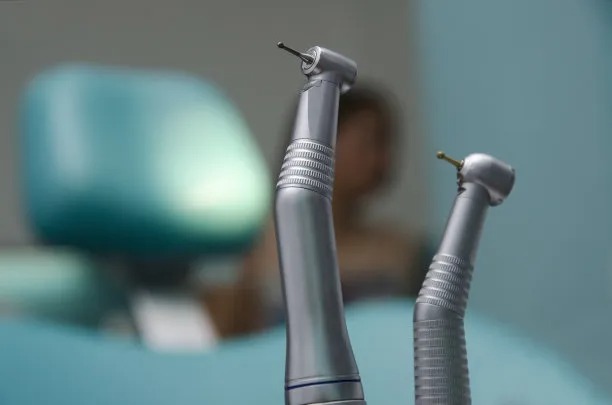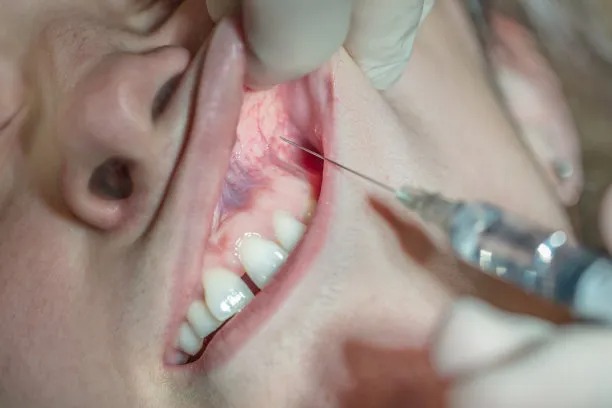Summary: Dental implant surgery is a significant decision that can lead to improved quality of life and oral health. To achieve optimal results and a smooth recovery, patients must take essential precautions before the procedure. This article emphasizes four vital aspects: thorough research about the procedure and dentist, maintaining a healthy lifestyle, understanding potential risks and complications, and following pre-operative instructions. By addressing these factors, individuals can better prepare for dental implant surgery, ensuring both safety and success in their dental care journey.
1. Research Your Dentist and Procedure Thoroughly

Before undergoing dental implant surgery, it is crucial to conduct thorough research about both your dentist and the procedure itself. Start by checking the credentials and experience of the dental professional. Look for specialists who are certified in oral surgery or prosthodontics, as they possess the required training to perform the procedure competently.
Reading reviews from previous patients can provide insight into the dentists skills and the overall experience at the clinic. Online platforms and social media are valuable resources where you can find firsthand accounts. In addition, consulting with friends or family who have undergone similar procedures can offer recommendations and help build your confidence in a particular practice.
Understanding the dental implant process itself is equally important. Research the types of implants available, the surgical techniques involved, and the overall timeline for recovery. Being well-informed will enable you to ask informed questions during your consultation, ensuring that you know what to expect every step of the way.
2. Maintain a Healthy Lifestyle Before Surgery
Adopting a healthy lifestyle in the lead-up to your dental implant surgery can significantly enhance your recovery and overall outcomes. Prior to the procedure, ensure you maintain a balanced diet rich in vitamins and minerals. Nutrients like calcium and vitamin D are particularly important for strengthening your bones and promoting healing.
In addition to eating well, consider developing a regular exercise routine if you arent already physically active. Exercise can improve blood flow, which is beneficial during recovery, and may also help reduce stress levels that often accompany surgical procedures. It’s wise to avoid smoking and excessive alcohol consumption leading up to your surgery, as these habits can impede healing and increase the risk of complications.
Finally, prioritize sleep during this time; a well-rested body is more capable of healing effectively. Aim for 7-9 hours of quality sleep each night and consider adopting relaxation techniques such as meditation or deep breathing, which can contribute to your overall well-being.
3. Understand the Risks and Complications Involved
Like any surgical procedure, dental implants come with inherent risks and potential complications. It is critical to have a clear understanding of these issues before proceeding. Common risks include infection at the implant site, nerve damage, and failure of the implant to integrate with the bone. A thorough discussion with your dentist will help you understand the likelihood of these risks based on your individual health factors.
In some cases, pre-existing conditions such as diabetes, osteoporosis, or certain autoimmune disorders can increase the risk of complications. Be sure to disclose your full medical history to your dentist, including any medications you are taking, to ensure they can take the necessary precautions.
Your dentist may also recommend imaging studies, such as X-rays or CT scans, to assess the quality of your bone and help in planning the surgery. Understanding all these aspects will empower you to make an informed decision and prepare adequately for the procedure.
4. Follow Pre-Operative Instructions Closely
Your dentist will provide you with specific pre-operative instructions designed to optimize the conditions for your surgery. This may include adjustments to your diet, cessation of certain medications, and guidelines on what to expect on the day of the surgery.
For instance, you may be instructed to refrain from eating or drinking for a certain period prior to your appointment, especially if sedation will be used. Adhering to these instructions is vital for ensuring a smooth process and minimizing the risk of complications during surgery.
In addition, make arrangements for someone to accompany you on the day of the surgery. This will be particularly important if you are receiving sedation, as you will need assistance getting home afterward. Planning ahead can help alleviate stress and ensure you remain calm and focused leading up to your surgery.
Summary:
Preparing for dental implant surgery involves careful consideration and proactive steps to ensure optimal results. By researching your dentist, maintaining a healthy lifestyle, understanding the associated risks, and following pre-operative instructions, you can enhance your chances of a successful outcome.
Ultimately, taking these precautions lays the foundation for effective healing and long-term satisfaction with your dental implants.
This article is compiled by Vickong Dental and the content is for reference only.
Vickong Dental
Vickong Dental is a large medical group established in Hong Kong in 2008 by professors from well-known medical universities in Guangdong and Hong Kong, as well as medical doctors from key national '985' universities (including Master's supervisors and senior professors). The chain of branches brings together expert dentists with PhDs and Master's degrees from Hong Kong and Mainland China, committed to providing high-quality dental treatment.
"Vickong Dental Practices the University Motto of 'Healing and Serving Society,' with a Stable Operation for Sixteen Years. It Has Been honored with Hong Kong Enterprise Leaders's Choice,' and is a Global Trusted Implant Center for the Nobel Implant System. Recommended by Hong Kong Metro Broadcast and Guangdong Television, it Serves Customers from Over Thirty Countries and Regions, Gaining the Trust and Favor of Citizens from the Guangdong-Hong Kong-Macau Greater Bay Area and Surrounding Cities.

Thousands of customers' unanimous praise
The most recognized and highly recommended dental service by customers in the Guangdong-Hong Kong-Macau Greater Bay Area
We Ensure You Receive Detailed Care and Attention Here
Hong Kong standards, Shenzhen prices, Your Trusted English-speaking dentists

Vickong Dental Medical-Grade Instrument Disinfection Process
Vickong Dental Medical-Grade Instrument Disinfection Process

Vickong Dental Chain: A Warm and Comfortable Environment for Treatment






Appointment Hours

Q&A
Why choose Vickong Dental?
Vickong Dental practices the university motto 「Medicine to Benefit Society」, with each branch bringing together highly qualified dentists with doctoral and master’s degrees from Hong Kong and the Mainland, and has maintained seventeen years of steady operation。Recipient of 「2024 Hong Kong Enterprise Leaders Brand」, 「2025 Hong Kong Enterprise Leaders Brand」, a Nobel Biocare Global Trusted Implant Center, and a brand recommended by Metro Radio Hong Kong and Guangdong TV。
To date, we have served customers from more than thirty countries and regions,earning exceptionally high word-of-mouth recognition and trusted recommendations from residents across the Guangdong-Hong Kong-Macao Greater Bay Area and surrounding cities
We have eight major branches in Zhuhai、Shenzhen,and a consultation and service assurance center in Hong Kong,so you can book a free consultation at any time for any questions,which is very reassuring.
If I do not accept the quotation after the CT scan, will I be charged??
No! As long as the actual treatment has not started, you will not be charged any fees.
Will there be any additional charges during the treatment process?
No, there won’t be any additional charges. Before treatment begins, we will clearly explain the treatment plan and its corresponding fees. Only after the patient agrees and signs the consent form will we proceed with the dental service.
Can I pay in Hong Kong dollars?
Yes. Vickong Dental accepts payment in Hong Kong dollars. The amount will be converted based on the exchange rate of the day, and the applicable rate will be clearly communicated to you in advance.
Can I reschedule my appointment at any time?
Yes. Please contact us via **WeChat** or **WhatsApp** as early as possible, providing your original appointment time and details, along with your preferred new date and time slot for rescheduling.













